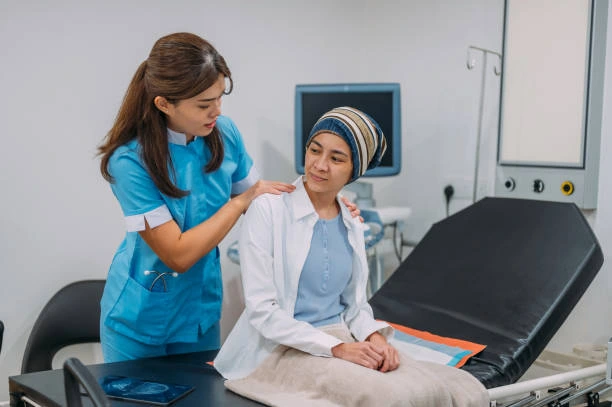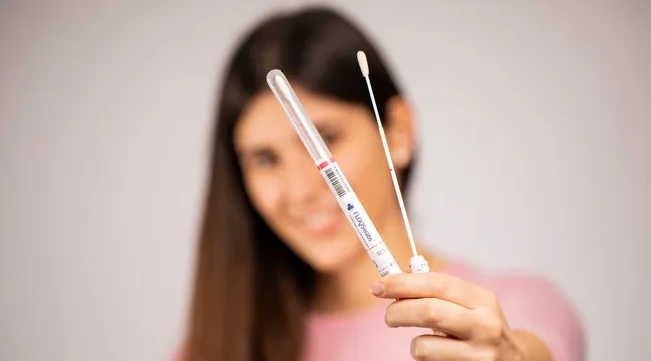Women aged 30 and over can now use the scrub to collect their own vaginal lining to screen for cervical cancer. According to new guidelines from the National Health Working Group
Draft recommendations announced Tuesday by the U.S. Preventive Services Task Force. It means women between the ages of 30 and 65 can forgo the dreaded Pap smear to test for HPV, the most common sexually transmitted disease. which causes cancer of the neck of the uterus. The draft guidance also applies to people who were assigned female at birth. Including transgender men and non-binary people.
For Pap smear testing Health professionals check the color of the uterus during a pelvic exam to look for cancerous or precancerous cells, according to the Mayo Clinic.

New automatic collection method This is performed at the doctor’s office every five years, with increased doses or follow-up in women. Most of them are women who do not have regular examinations. Press release from the working group An independent, voluntary panel of health experts said the new guidance helps avoid unnecessary testing and procedures.
“Women who feel more comfortable putting together a similar HPV test can now do so,” she told Dr. Esa Davis, a member of the task force and a professor at the University of Maryland School of Medicine, in a statement. “We hope this new and effective option will help more women get screened regularly.”
In May The Food and Drug Administration has approved endoscopic HPV testing. But it is rarely available in health care settings such as clinics, emergency rooms, or pharmacies.
According to the Centers for Disease Control and Prevention, every year approximately 11,500 cases of cervical cancer are diagnosed in the United States. 4,000 Americans die from cancer every year.

The number of cases and deaths has decreased significantly due to widespread reductions in morbidity. This is called obligate taxa. Meanwhile Low-yield women increase cervical cancer taxa And black women have a higher incidence and death from cancer.
The HPV vaccine is effective in preventing infection. These often occur as genital warts and can result in cancer. This vaccine is given twice daily between ages 2-9. It can be used in conjunction with screening to reduce the number of cervical cancer taxa later in a person’s life.
The task force still recommends that women aged 21 to 29 get a Pap smear every three years because they are not fully protected against vaccination. For women between the ages of 30 and 65, Task force recommends having a Pap smear every three years or a combined HPV and Pap smear every five years.
It is still not recommended for women under 21 to undergo screening. or for women over age 65 who have had regular screening with normal test results. and any woman who has had her entire uterus removed She told the troops.
The recommendations are still being finalized by task force.





